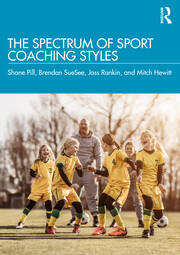How can AI 'power up' sport teaching and learning in PE and sport coaching settings
If you haven't seen Sal Kahn TED talk, ‘How AI could save (not destroy)
education’
https://www.youtube.com/watch?v=hJP5GqnTrNo I recommend it to you.
In this video, Sal explains that while we have seen AI can help teachers with lesson planning, and we have seen teachers and systems worry that AI will do the 'work' of students for them, and therefore use of AI needs to monitored and controlled. However, Sal explains how AI can 'power up' student learning and why AI should be embraced when developed pedagogically.
Benjamin Bloom 2 sigma study
Sal references the 'famous' 2-sigma study. This study showed that personalised teaching with a focus on mastery learning leads to
two standard deviation improvement in student learning outcomes as it enabled teachers to give more
attention to student ‘higher mental processes’ – problem-solving, application
of principles, analytical skills, and creativity. Thinking central in continuing
learning as independent, self-regulated learners. No other 'system of instruction' comes close to this effect on learning.
Mastery-learning: student is afforded their time to achieve
mastery.
Personal ‘tutor’ – ongoing individualised guidance through
the learning until the ‘subject’ is mastered.
However, it has not been possible to scale this type of learning ecosytem for students as it is time and resource intensive.
AI makes it possible.
AI and sport teaching and coaching.
Teachers and sport coaches already have the opportunity to enrich the information-feedback environment in PE and sport coaching using video replay and apps like coaches eye. In many of these aplications, players can compare their movement performsnce to that of an 'ideal' performer, providing the type of learning by mimickery common when novice players attempt to 'copy' a player 'like them'.
Soon, students will be able to put video in the AI and ask the AI questions about their performance, team performance, opposition performance. If the AI is 'programmed' to prompt thinking instead of directly answer, it will be able to enage the player-learner in a socratic process of inquiry to guide player thinking.
Socratic Questioning is a dialectical method of inquiry and
debate by means of a carefully constructed series of leading questions
to arrive at logical responses and/or to stimulate rational thinking (read more here). This definition is similar to the method described in the Spectrum of Teaching Styles as Guided Discovery via a series of layered sequential questioning.
AI in physical education and sport coaching will enable:
- the provision of more, and more individualised, feedback
- with just in time learning
- that can be self-directed by the learner.
It will enable more personalised systems of instruction in PE and sport coaching, where player-learners can manage their learning and learning goals as they will not need to wait for information from the teacher or coach, as they will each have their own 'personal-coach'. John Williams, Michael Davies and I did a PSI project with early years learners in PE learning FMS last year, using ipad stations to provide student self-paced, managed and regulated learning in an assisted environment (teacher as facilitator). We are writing up the findings now for publication, and finding the students preferred the teaching to other PE teahing they have had. AI will enable the the ideas trialled in this study 'to the next level' of personalised instruction.
For both PE teachers and the novice sport coach, AI provides the potential to consider player development needs in ways the coach has yet to develop the pedagogical and/or domain specific knowledge to be able to do - providing implicit professional development with the posibility of accelerating the coach development.
If you are interested in further reading in the opportunities and challenges for physical education teaching oprivided by AI, Lee and Lee (2021) give consideration to the future of PE with AI in this paper here



Comments
Post a Comment